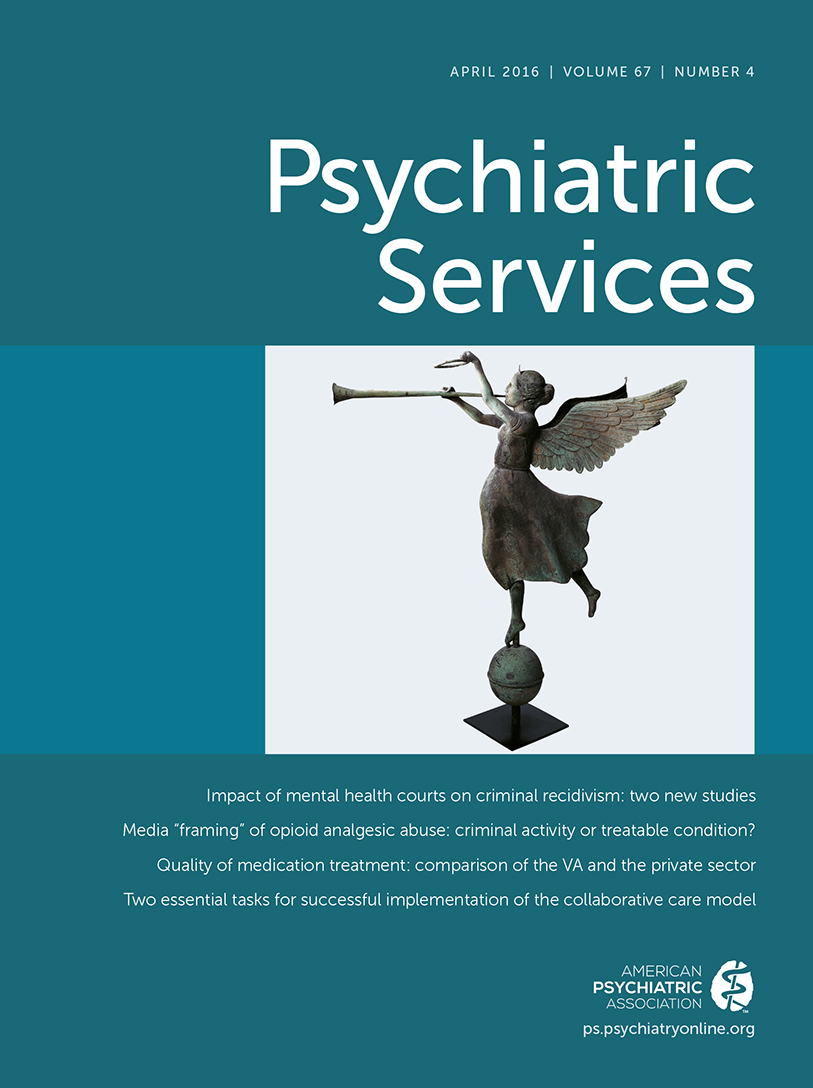The Impact of Community Treatment on Recidivism Among Mental Health Court Participants
Abstract
Objective:
A core component of mental health courts (MHCs) is the provision of community treatment in order to reduce arrests. However, research on the components of treatment received by MHC participants is rare. This study examined the impact of community treatment on arrests in an MHC sample (N=357) and a sample from the traditional criminal justice system (N=384).
Methods:
Data were from the MacArthur MHC Project, which includes objective and subjective information from four MHCs with comparison samples at each site. Interview data were collected for six months before and six months after entry into the MHC or legal system. National data from arrest records over one year were also obtained. Treatment-related variables were compliance (appointments and medication), perceptions (motivation and perceived voluntariness), and use of nine types of community treatment. A fixed-effects regression controlled for selection bias between groups.
Results:
The regression model indicated significant increases in treatment motivation and use of community mental health and substance abuse services among MHC participants, compared with treatment-as-usual participants; however, the perceived voluntariness of treatment decreased in the MHC group. For the treatment-as-usual group, none of the treatment variables were associated with future arrest. For the MHC group, increased medication compliance and use of mental health services were associated with a significant decrease in arrests.
Conclusions:
Consistent with the MHC goals, findings indicated increases in receipt of community treatment among MHC participants. For the MHC sample, but not the treatment-as-usual sample, increased treatment was associated with reduced recidivism.



